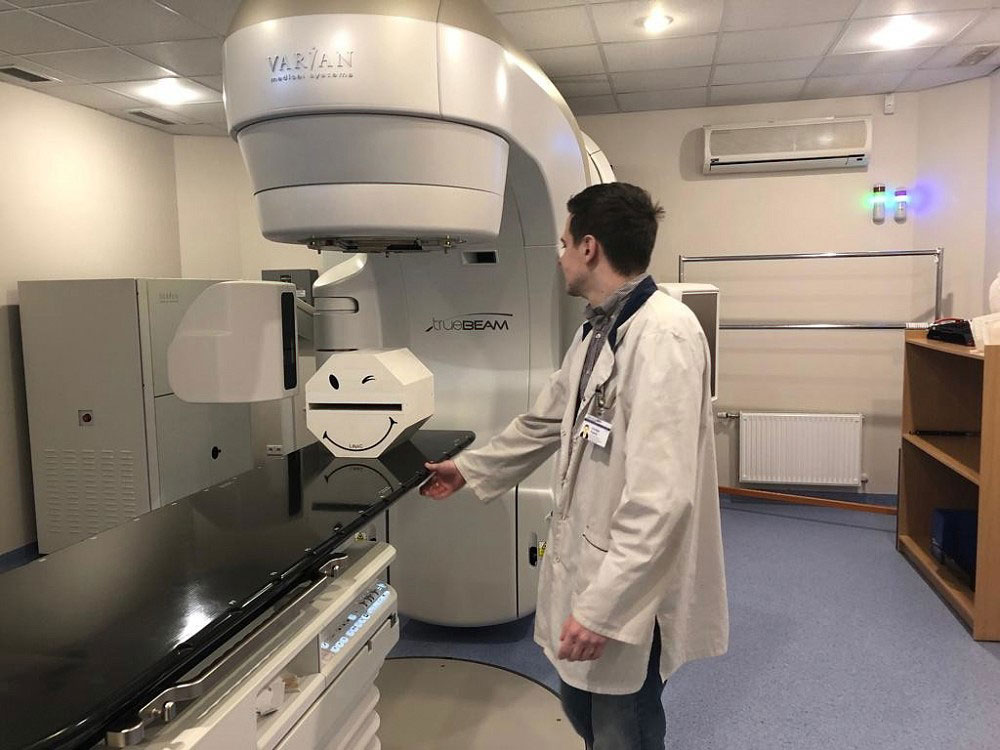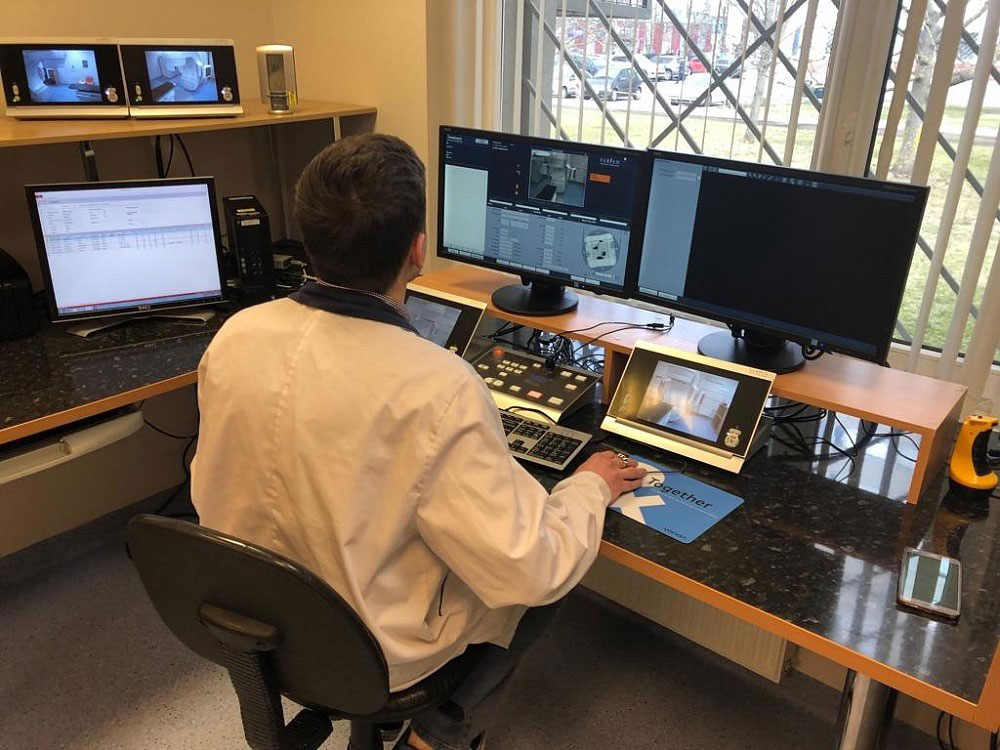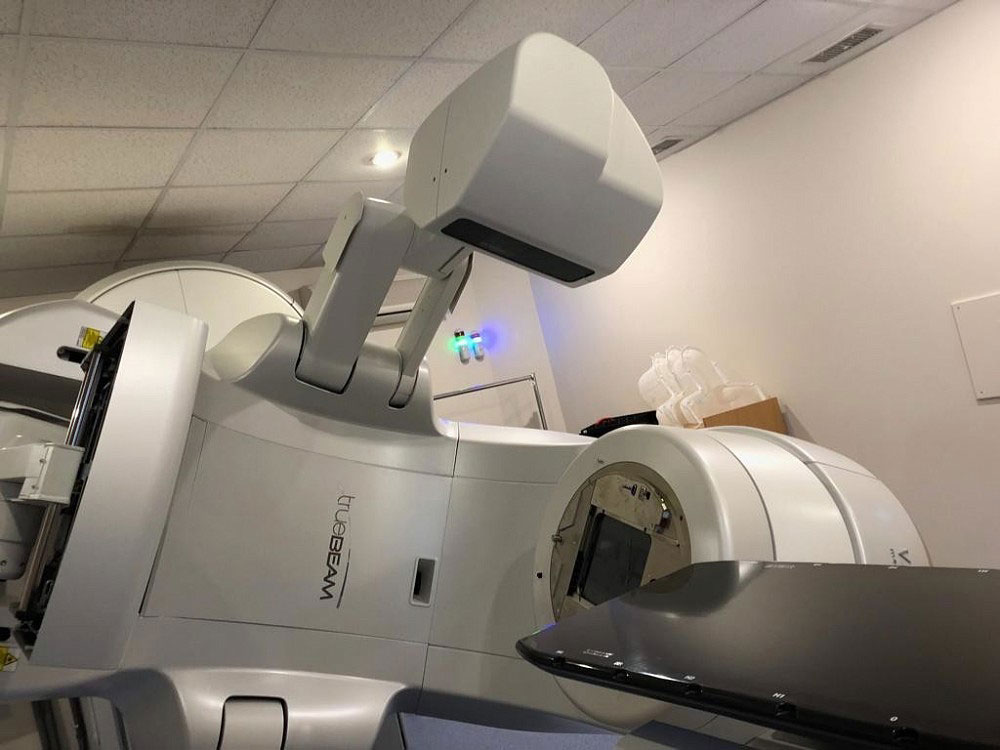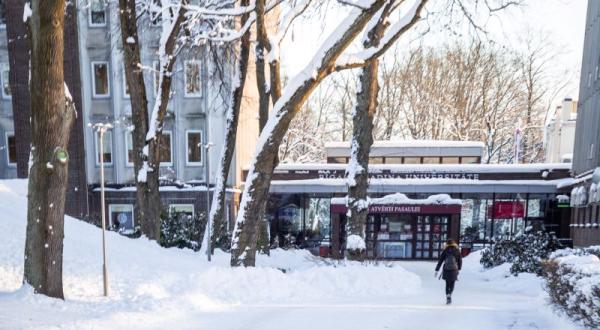Kristaps Paļskis: the safety of medical equipment is a priority!
The conviction that the safety of medical equipment is a priority motivates Kristaps Paļskis, a graduate of the joint study programme Medical Engineering and Physics of Rīga Stradiņš University (RSU) and Riga Technical University (RTU). This course offers studies in an uncommon, contemporary and future-oriented speciality. The young medical engineer is confident that the link between medicine and modern technologies and equipment developed based on the latest discoveries in physics and other areas of innovation and research will become tighter. This will therefore increase the demand for specialists with deeper knowledge to maintain and test such equipment.
The first students from the joint study programme graduated in February 2018. Kristaps, who was among the 12 graduates, completed his studies with distinction. His academic performance has been noticed and appreciated by the head of the programme from the RSU side, Assistant Professor Oļegs Sabeļņikovs. Prof. Sabeļņikovs emphasises that medical engineers are future specialists who are indispensable in contemporary healthcare.

An interest in the clinical environment
Kristaps is responsible for equipment that patients’ lives depend on – equipment that is used daily for procedures that save cancer patients' lives at the Oncology Centre of Latvia. This includes radiotherapy equipment used by physicians to treat cancer. Medical engineers also ensure that x-ray equipment, computed tomography, MRI and other equipment function as they should and perform regular tests.
Any equipment, regardless of its complexity, can be damaged including equipment that has been used successfully for decades, or machines which have been developed more recently. Kristaps explains that contemporary medical equipment has various internal safeguards that will switch the equipment off in the case of an accident. A scenario in which a machine would attack a human is something out of a science-fiction movie rather than a possibility in real life. Damage is possible, however, and a medical engineer is there fore on call at the Oncology Centre of Latvia at any time of the day or night. Another, no less important task, is the regular maintenance of devices and communication with manufacturers’ or distributors’ service centres whose representatives perform especially complex repairs.
Kristaps is not by patients' side during treatment except in cases when the equipment has been recently repaired and it is necessary to check the way it works in practice. A medical engineer communicates with physicians on a regular basis.

Choice of occupation
Kristaps attended Koknese Secondary School and was always good at natural sciences. He therefore considered a possible future career in engineering. He was also interested in medicine, but not, however, in the treatment of individual patients, but rather in how modern technologies are used in treatment. He first learned about the course from a brochure he picked up at an academic fair.
Being a graduate looking back at 4.5 years of studies Kristaps is able to discern the contribution of each university precisely. RSU demonstrated the way in which a patient can benefit from the use of modern equipment, and provided knowledge in anatomy, physiology, public health, epidemiology and other disciplines. The course conducted by Assistant Professor Oļegs Sabeļnikovs provided an excellent overview of the hospital environment and the use of medical tools and equipment. Students attended hospitals and learned the principles of how to use the equipment in clinical work on site. RTU, on the other hand, focused on technical matters, for example on the construction of the equipment.
A broad spectrum of employment opportunities
Kristaps chose work in a hospital, because he was interested in the clinical environment and the opportunity to see in person the impact the medical equipment has on patients' health. However, if one is not interested in working in a hospital there are additional employment opportunities with manufacturers or distributors, at various plants or service centres that provide services to hospitals and other medical institutions. There are also employment opportunities with international companies and, as the young specialist says with a smile, travel opportunities as well. Based on his personal experience, which he acquired during international courses, Kristaps is confident that RSU and RTU jointly prepare highly qualified and competitive specialists who are able to represent Latvia at international companies abroad or in their branches in Latvia.
Cooperation as a key to preparing excellent specialists
Cooperation with leading higher education institutions in Latvia and developing joint study programmes and cooperation in research are strategic priorities of RSU. To date cooperation agreements have been concluded with Riga Technical University, the Latvian Academy of Sport Education, Latvian University of Life Sciences and Technologies, the Art Academy of Latvia, Liepaja University and Ventspils University College. A cooperation agreement with Daugavpils University will be signed soon. Each higher education institution has its own specialisation, and cooperation between institutions by establishing joint study programmes fosters the training of outstanding professionals.





